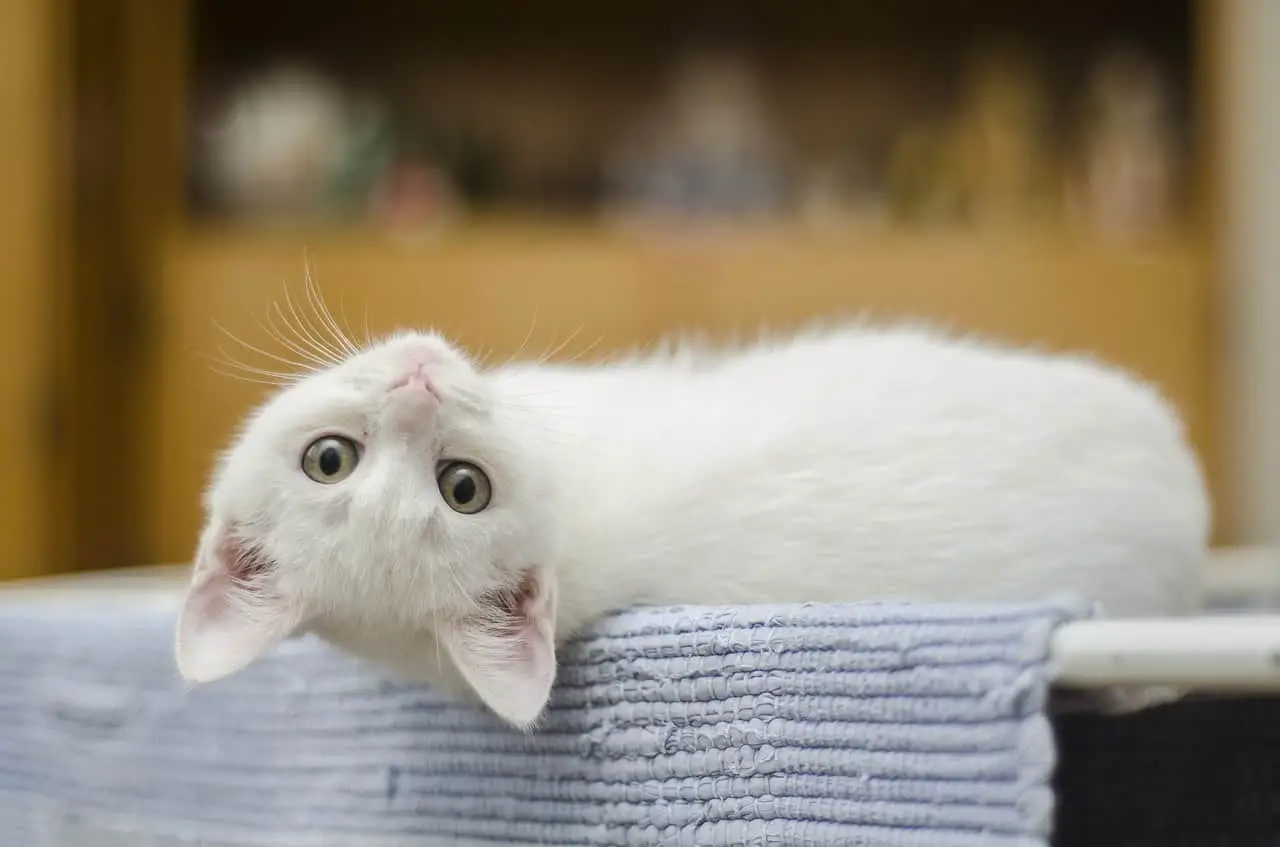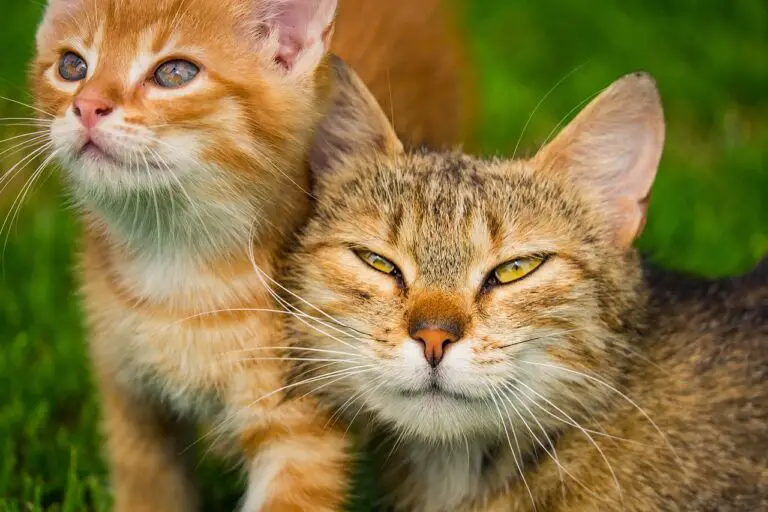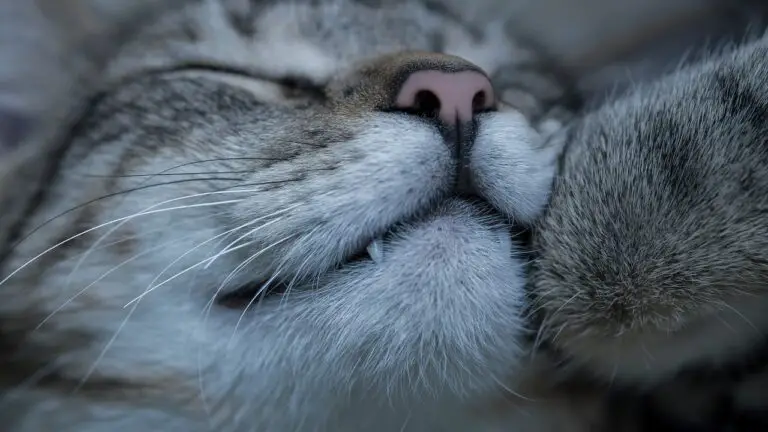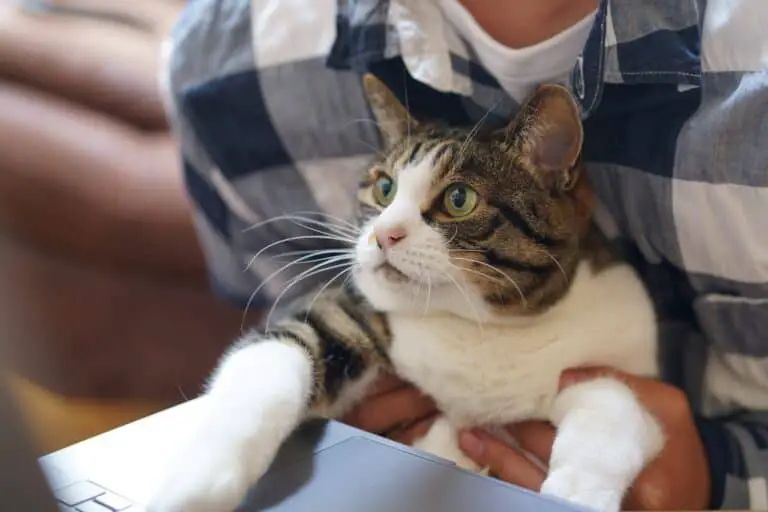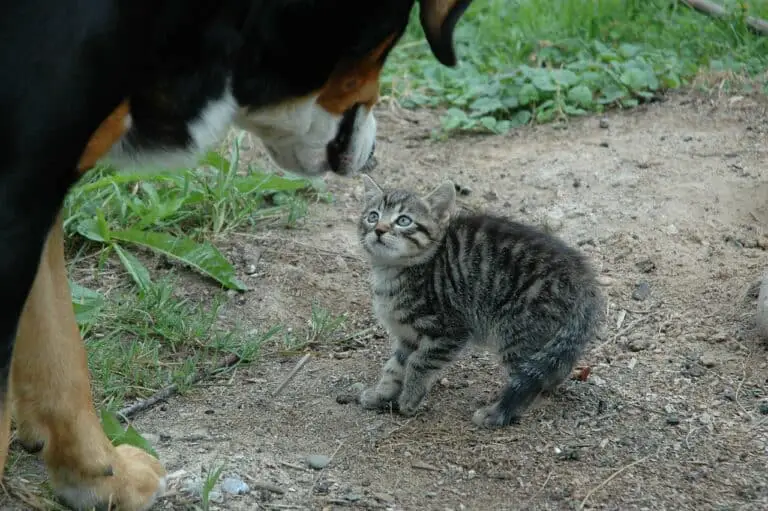DO CATS CALM DOWN WITH AGE? 5 THINGS TO KNOW
Do cats calm down with age? If you just got a kitten, I am sure you are wondering if he or she will eventually get calmer. Kittens are very energetic, and their only purpose in life is to play, run around and get into as many troubles as possible.
Cats calm down considerably at maturity, which is in general around a year of age. Growing up more and reaching 2 or 3 years old, they usually get way calmer. Some energetic kittens will still be playful between 1 and 2 years, but not as much as before.
Let’s see when kittens and cats, in general, will calm down and at what age you as a cat owner can take a break from cleaning your cat terroristic actions around the house.
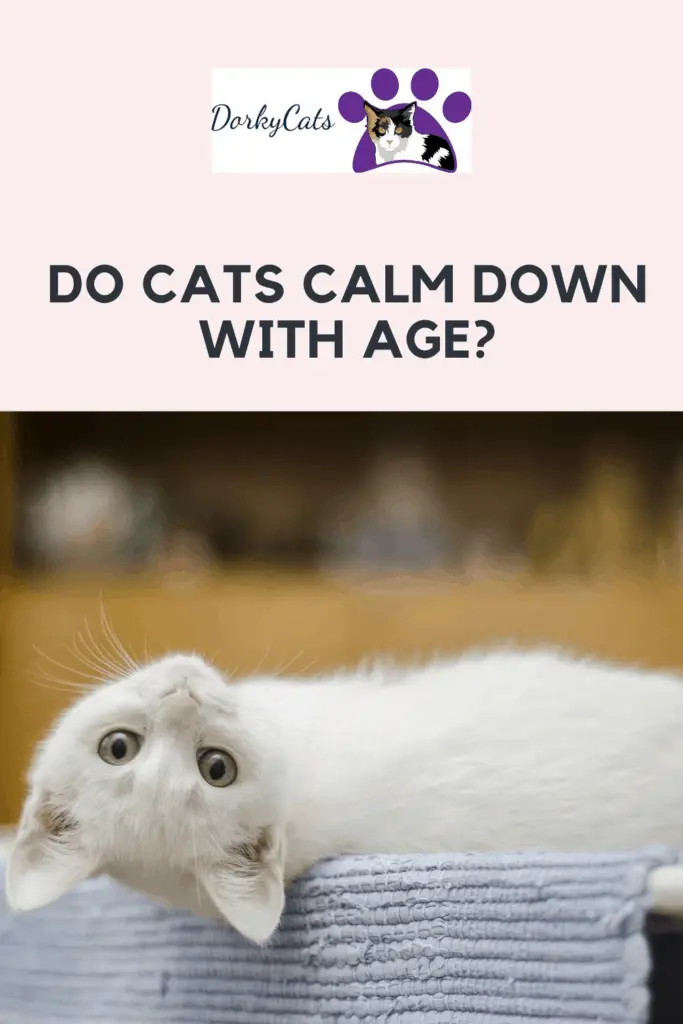
DO CATS CALM DOWN WITH AGE?
With age, cats tend to calm down and be less active, although you have to wait a couple of years for your cat to decrease the “kitten stage hyperactivity” exponentially. However, once they reach one year of age and a kitten transition to the adult stage, you can already see a big difference.
In some cases, even one-year-old cats are still hyperactive for a while. Cats have different personalities, and their breed can change the expected timeline for a change in activity level.
For example, my cat sensibly calmed down when he became one, and he also became more affectionate and willing to receive cuddles. But remember that every cat is different, so that each one may have different timing.
If you just got a kitten, congratulations! Your “trouble” just begun! The only thing kittens do is run, play, jump, fight non-stop until they suddenly start sleeping (while they are still playing).
They have an engine that runs on endless energy, this is what makes them fun and cute, and ultimately, even if we pretend we do not like the chaos, we love it!
WHEN WILL MY KITTEN CALM DOWN AND STOP BITING?
Kitten will calm down around a year of age and stop biting when their teeth are fully grown, which is around 6 or 7 months of age. At this time, their baby teeth will fall out, and adult teeth will grow. However, cats need to bite on things to release pain and help the growing process.
But, cats also bite on things because they are playing. Your feet and hands are not safe at night because your cat will try to bite them. He just wants to play. In my experience, cats do that when they are kittens. Once they grow into adult cats, the biting ends.
At around eight months, kittens may be fewer trouble makers. After one year old, they are considerably calmer. At 2, you can see them liking more to watch outside (from a window) and sleep upside down and pretend you scratch their belly.
My cat did not allow me to scratch his bell until he was two. When he was a kitten, he would just run and play. He was not searching that much for a good scratch under his chin, and I really had difficulty making him stay still for a second.
Now it is different music. He comes near me and pretends to be petted. Finally, he jumps on my bed and lies down on his back, keeping his feet up and asking for a belly scratch.
Unthinkable when he was younger.
HOW TO STOP MY KITTEN FROM BITING AND ATTACKING ME?
In general, kittens will stop biting and attacking you as soon as they grow up. You need to be patient. If they are encouraged to chew and play hard by their owners, they can develop aggressive behavior even as adult cats. Cats owners should play with their cats avoiding biting games with hands and feet.
Kittens have small teeth and tiny claws. Therefore, their biting and scratching are harmless. However, it is not the same scenario with an adult cat with grown teeth and claws. Some cats know how much force to apply during play and not harm their owner while biting.
But, often, cats can’t do that or do not realize they are causing pain. So here are the best way to stop a kitten from biting and attacking you:
- Teach your cat alternative playing habits: If your cat like to play with your hands, provide toys and use them to play with your cat.
- Scream if he bites you: If you scream, your cat will get scared and refrain from biting you again.
- Provide cats trees and scratching posts: If possible, provide scratching post and cats trees when your cat is very young so he can become accustomed to use them.
- Teach your cat the word “NO”: teach your cat what NO means. Train to know that when you say no he has to stop whatever he is doing
- Spaying or neutering: spaying or neutering cats can help to calm them down.
- Get your cat a playmate: a second cat can give new chances of play and run out excessive energy.
WHEN DO CATS STOP BEING HYPER?
Cats go through different life stages. The hyper” stage is the kitten stage, especially between one to 7 months old. Some cats may have high energy and keep the activity up longer.
However, you can reasonably expect your hyper kitten to start slowing down when they reach sexual maturity at seven months.
Some cats may have irregular hyper periods here and there, even when older. This is because cats need to run out their energy. But, again, those timings are not absolutes. In addition, cats may have different personalities and energy levels.
HOW DOES CATS BEHAVIOR CHANGE WITH AGE?
Yes, of course. You may have seen it on your cat. Cats change their behavior, schedule, and habits the older they grow. They start with an uncontrollable energy level down to a more quiet and balanced lifestyle. Experts have tried to categorize behaviors to ages.
Here is a summary:
- 0 -12 Months: cats are still kittens. They are uncontrolled balls of energy at 6 months; however, they move into a more mature ” kitten stage ” where they are more aware of the surroundings and seeking dominance.
- 1-2 years old: Cats are not kittens anymore; they are still playful and would not refuse running around a ball or toy. However, they are more controlled, and they tend to find hiding spots if they do not like something they may hiss at it. You may find him more often laid on his back and showing his belly or sleeping like a champion.
- 3 to 6 years old: Normally he is into a routine now, his energy level will have the same characteristic. Basically, he is now into habits.
- 7-10 years old: He is now in his middle age. Cats are staying always playful, but he will not like changes to his routines and habits. He may become more anxious if you change his hiding places or change family habits.
- 11+ years old: congratulation, he is now a senior cat. Some senior cats still like to play and hunt, but for sure, they are more around their favorite bed or place or like to stare outside the window.
While we may go crazy with kittens, we are going to look back with love at times our cats were so small and so cute and so crazy!
HOW CAN I KEEP MY CAT CALM AT NIGHT?
Cats are more active at night and sleep during the day. So if you are at home during the day, try to play with him and not let him sleep that much so that he can sleep at night. Usually, I give my cat food before going to sleep to let me sleep during the night.
You can do the following to keep your cat calm at night:
- Play with your cat before bed
- Feed him before you go to sleep
- Get your cat a friend cat to play with
- Provide a place for your cat to watch outside a window
- Provide plenty of toys
Read Also: WHY IS MY CAT FOLLOWING ME TO THE BATHROOM
FREQUENTLY ASKED QUESTIONS
How do I calm my cat down if he becomes upset?
The best way to calm a cat down after an upset is to back off and give the cat space. Whether the cat is agitated because they are over-excited or fearful, withdrawing will help. In both instances, this removes the source of the agitation.
Do cats get less energetic as they get older?
Cats become less energetic as they get older. It is a natural consequence. But young and mid-age cats still like to play and can be active. However, the frantic kitten stage is over.
Do cats become more affectionate with age?
Kitten getting out of the hyperactive phase and becoming adults tend to become more affectionate and cuddly with their owners. It happens because cats calm down and change their behavior, usually showing more affection.

